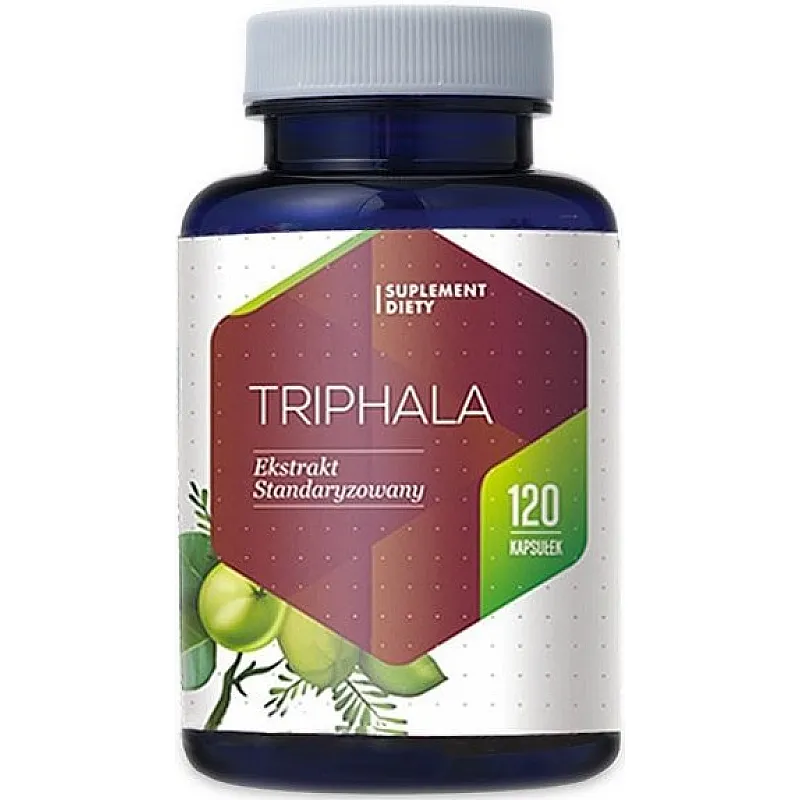
Hepatica Triphala 120 caps.
- A unique combination of three Ayurvedic herbs
- High-quality standardized extracts
Discover the power of nature with HEPATICA Triphala - a unique dietary supplement combining the tradition of ayurveda with modernity. This unique product contains a carefully selected blend of extracts from three Ayurvedic herbs in equal proportions: Amla (Emblica officinalis), Haritaki (Terminalia chebula) and Bibhitaki (Terminalia bellirica).
Each HEPATICA Triphala capsule provides as much as 310 mg of highly concentrated extract, including 124 mg of valuable tannins. The extracts used in production are standardized, which guarantees their highest quality and effectiveness. This makes the supplement extremely powerful and can bring many benefits to your body.
Triphala is a traditional Ayurvedic formula that has been prized for its beneficial properties for centuries. Amla, also known as Indian gooseberry, is rich in vitamins C and E, tannins, ellagic and gallic acids and carotenoids. Haritaki contains valuable anthraquinones and triterpenoid glycosides, and Bibhitaki is rich in tannins and sterols.
By choosing HEPATICA Triphala, you are betting on a natural and holistic path to well-being. This unique dietary supplement, based on the centuries-old tradition of Ayurveda, can become your daily ally on the road to vitality.
Recommended intake
Take one capsule in the evening after a meal.
Additional information:
Do not exceed the recommended daily serving. Dietary supplement should not be used as a substitute (replacement) for a varied diet. A balanced diet and proper lifestyle is important for the functioning of the human body.
Storage:
Store in a tightly closed container, at room temperature 15-25°C, in a dry place, out of the reach of small children. Protect from moisture and light.
Precautions:
Do not use in case of hypersensitivity to any of the ingredients. If you have a medical condition or use medicinal products, consult a doctor about taking the dietary supplement. Do not use in children, pregnant or lactating women.
Ingredients
Stabilizer - hydroxypropylmethylcellulose (capsule ingredient).
Manufacturer and distributor
Manufacturer:
Hepatica Sławomir Rasiński
ul. Nasutów 164
21-025 Niemce
Polska
Distributor:
Hepatica Sławomir Rasiński
ul. Nasutów 164
21-025 Niemce
Polska